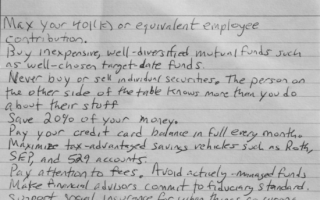
When that day comes that you decide to sell your property, whether it be for an investment venture or relocation, you’ll need to decide what route you want to take. Going through a realtor saves some time and energy in determining costs and the like, but it does not save you as much money.
If you’re hoping to turn around a larger profit you may want to cut out the middle man. Here’s what you need to know if you are considering selling your home privately:
Weigh out the pros and cons
Before making any decision, pros and cons need to obviously be weighed out. Ask yourself the following:
- Do I have the patience and time to do this?
- What is my projected savings? How much do I hope to make from this sale?
- Will it be worth my time and energy?
Robert Mischler, of Davidsville, PA, decided to sell his Cape Cod home privately a few years ago. His main reason?
“I wanted to avoid the fees by a realtor,” he said in a phone interview.
For Mischler, he was aware of the challenges he faced and knew it would be worth saving money. By selling privately, you are also able to lower your asking price compared to other homes for sales in the area due to not having the added commission costs. This can make the selling process faster if you’re looking to move things along quickly. You do also have the option of pricing your home similarly and pocketing even more of a commission.
Coming up with a price
As you take this venture on your own, you’ll need to decide how much you’re going to list your house to cost. You could have a third party assess your home and evaluate your property for you but know that this will most likely come at an added expense. A bad habit to avoid is setting a price too high. You may value your home and think it is worth all the money in the world, but you need to have a realistic approach when determining the sale.
Researching your area and the local market will help you work on a fair price. You can also look at the property tax assessment, but do not rely on this fully as many can be outdated. Starting with what you paid for the house is a good start.
Mischler owned his home for close to 10 years before deciding to sell. With a 1.5 story property with 1.5 baths, three small bedrooms that included an above ground pool, a detached garage and a large shed on half an acre, he decided he’d be OK with no capital gains.
“I [chose to sell] it for what I paid for it,” he said. “I made some improvements, but it needed some other things so I figured I broke even.”
Decide what items to leave in the house
When determining your cost, you may want to consider including any furniture or appliances into the overall price. Remember to think about depreciation of any items and whether or not you think including these items will also help your sale. You’ll also need to make it clear what is and is not included with the final sale in the contract with the buyer.
Know the challenges
In addition to showing the house yourself, you will also need to advertise the listing on your own.
You can sell your home privately with no previous experience, but you still need to be aware of the challenges. In fact, Mischler is a registered nurse and had never been involved in real estate before, other than when he actually purchased the home.
“The challenges were finding buyers and knowing what to do when we had a buyer,” Mischler noted of his biggest obstacle in the process.
Another important aspect to keep in mind is advertising. Be aware of your advertising points such as any recent renovations, historic features, location and so on. Realtors take the pain of this off your shoulders, but this will be all up to your now. Get your home show-ready by ensuring it is always clean, well-maintained and creating a homey feel. Take quality photos when using these to market your property and include images of both in and outside of the house.
Mischler used primarily online resources like Zillow and Craigslist. Other low-cost advertising options include online flea market pages, social media and placing a “For Sale” sign outside of your home. It’s amazing how powerful word of mouth is as well. Tell your friends and family and encourage them to share the information with others. You may even want to hang up some flyers locally.
Overall, Mischler estimates it took about six months longer to sell than it would have through a professional. However, he did save roughly $4-5,000 in fees without looking for a profit and mentioned he would do it again.
His final tip is for the buyer:
“A closing specialist is a good help.”
A realtor may come at a cost but does make the process simpler for you while providing expertise. But, with research, diligence, time and energy, you can save money by selling your home privately.
Have you ever sold your home privately before? What was your experience?
Be sure to check back for a follow-up piece on the dangers of selling your home privately.






Comments